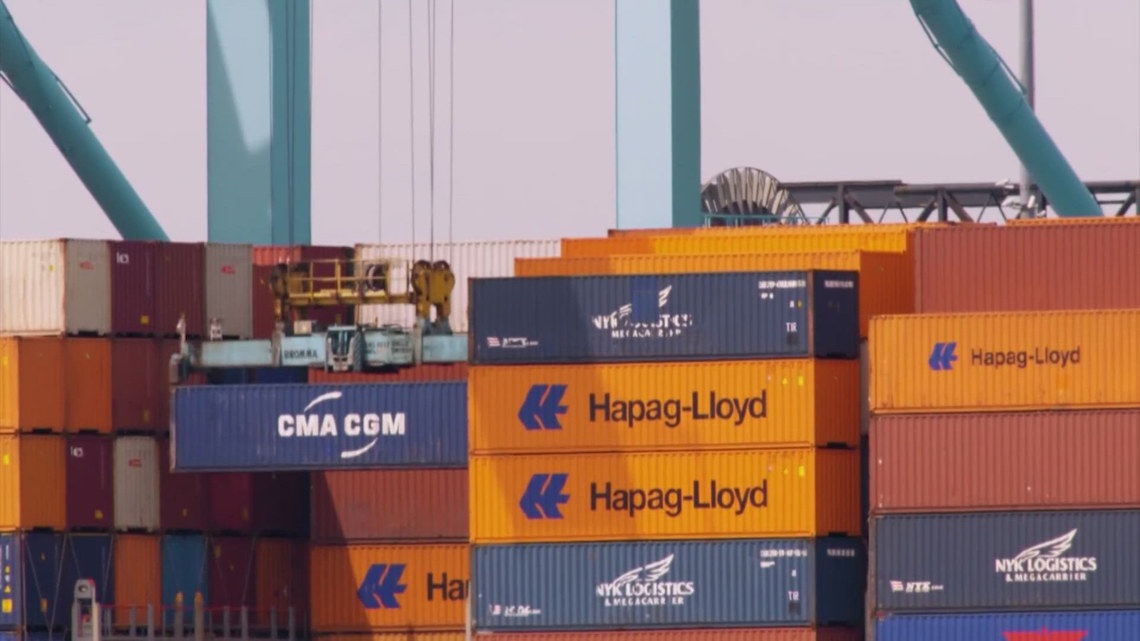
Houston trucking companies said they’re already feeling the impact of the workers’ strike because they can’t move anything.
HOUSTON — While it may take time for consumers to feel the impact of a prolonged strike by port workers, some trucking and supply chain businesses are immediately feeling the effects of the work stoppage.
Violetta Pinson is the owner and CEO of TKK Logistics and Trucking.
“It’s a very demanding job, a very demanding position to be in,” Pinson told KHOU 11 about the trucking business.
Pinson is known as the “Port Queen” among her peers because of how much business she conducts at the Port of Houston.
“Being a go-getter when it came to the rates and not just settling for anything,” Pinson said of how she got her nickname.
Now, Pinson and her husband Jacob Jeffrey — the owner and operator of J&B Transport — are dealing with a major blow to their businesses due to the dockworkers’ strike.
“It’s impacting us because we can’t move anything,” Jeffrey said. “Wheels are not turning, we’re not making any money.”
“It is a big challenge,” Pinson said. “I mean, it is the majority of what we do.”
Now, they are having to pivot their trucking efforts in order to get by.
“All we can do is pray, that’s the first thing,” Pinson said. “But then, you know, fortunately enough, we can possibly move to a different equipment type.”
Other businesses saw the potential for a strike coming and prepared ahead of time.
“We got with our customers early, they started ordering extra product early, we prepared our yards early,” Rebecca Roberts, the president and owner of All Points Warehouse, told KHOU 11.
Roberts and her company are members of the Greater Houston Trucking Association.
The company offers trans-loading, warehouse storage and other services.
Roberts said the preparation done by her company, including getting finances ready, came about partly as a lesson learned from the COVID-19 pandemic.
“We’re solidly prepared for a three- to six-month shutdown,” Roberts said. “And that was something that we learned when COVID came that we had to be ready.”
